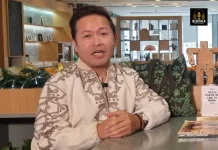
As teachers, Filipinos play an indispensable role in shaping the lives of millions of children worldwide. Miles away from home, Filipino migrant teachers have made their mark in classrooms throughout New Zealand (NZ).
“Since I arrived [in New Zealand], I have seen for myself how important the Filipino teachers are, not just in the education system in New Zealand, but in the New Zealand society as a whole,” Filipino Ambassador to New Zealand Kira Azucena told Good News Pilipinas. “The role of a teacher is in itself very impactful and very important. So being a Filipino teacher brings with it even more value because we bring in our cultural perspective, our professionalism, [and] our work ethic.”
“[My deputy principals] would always tell me that they love working with Filipino teachers because [we] put [our] heart into [our] work,” said Penny Cajipe, a Filipino early childhood educator who settled in Auckland in 2022. “We are persevering. We are passionate about our calling. So that’s why schools love to hire Filipino teachers, even if the process of coming here is quite taxing for employers since they have to apply for an overseas employment certificate… [even] despite that, they still want to hire Filipino teachers.”
Numerous Filipinos flock to New Zealand for its stunning sceneries and impressive welfare programs; as of 2018, a whopping 72,000 Filipinos live in the country. Of these, many work as educators, diligently filling in the teacher shortage in New Zealand. “Their agency for change [is highlighted] not just in the lives of the students that they take care of, but also in promoting the image of the Filipino and our culture,” Azucena added.
However, kickstarting the process of settling in NZ as a teacher is not a bed of roses. “It’s not really an easy road to head – there were lots of bumps that I’ve been through,” explained Vilma Leonidas, a Filipino teacher who has lived in Auckland for the past two years. In between taking several tests to evaluate one’s teaching qualifications and language prowess, and then finally obtaining that much-awaited teaching certificate, many choose to throw in the towel.
Thankfully, teachers like Leonidas and Cajipe have stepped in to aid migrant Filipino teachers in need. Through their respective Facebook support groups, both have paved the way for thousands of Filipino migrant teachers to make a home in New Zealand.
From Trial to Triumph
Leonidas created the Pioneering Pinoy Teachers in NZ Facebook page in 2023 to provide free tips and suggestions for Filipinos struggling to make the career transition to New Zealand; today, her page has 22,000 members. Cajipe runs a similar Facebook group, the Filipino Teachers in NZ Support Page. After being launched earlier this year, the page now has 4,000 members under its belt. On both pages, Leonidas and Cajipe advise aspiring teachers regarding document requirements, convey best practices in landing jobs, and share success stories.
The two teachers were inspired to establish their pages after hurdling the arduous journey of moving to NZ. Despite holding a Doctor of Philosophy (PhD) and teaching for 30 years in the Philippines, Leonidas struggled to find employment in New Zealand at first. “I thought that would be my ticket to get a job right away, but it was not,” she shared. It was only after traveling 10 hours from Auckland to Wellington that she also realized she had been given the wrong information regarding the requirements to obtain her teacher’s registration.
As for Cajipe, her overseas teaching qualifications were initially denied by New Zealand’s Ministry of Education. “I cried when I got the result,” she recalled. After she submitted a petition for reconsideration, her credentials were eventually approved; however, the onslaught of the COVID-19 pandemic significantly delayed her migration to New Zealand. “I got hired in [a primary school in New Zealand] in 2020. [In] January, we got our visas. We were ready to leave. My husband and I [were] both teachers in the same school [in the Philippines and] we resigned already. We [also] pulled out our children from Ateneo de Manila Grade School,” she narrated. “But a month before our flight, April 12, 2020, COVID happened and everything went on lockdown.”
“So I was jobless. My husband was jobless. My children had no school. We were thinking, ‘Oh, this will just be for two weeks [or] three weeks.’ And then the weeks turned into months,” she remembered.
Her family finally moved to New Zealand in 2022, with Cajipe landing a new teaching job in an Auckland preschool. Meanwhile, Leonidas ultimately received her teacher’s certificate, and was later granted a scholarship in a training program for educators; she now works as a relief teacher for Year 7 students in Auckland.
“I guess that journey really made me think that, ‘What if other teachers in the Philippines are also aspiring to fulfill that dream of teaching here, and they’re looking for a better future for their family? What if they’re also like me and they don’t know what to do?’ So that’s how that actually made me start the page,” Cajipe imparted.
Leonidas had the same thought. “I actually took the challenge as something that would inspire me more to help others,” she shared. “I told God, ‘If I am able to surpass all this and get what I ask from You, then I would not make life miserable for others.’”
Spirit of Bayanihan in New Zealand
With their respective Facebook pages taking on thousands of members, both Cajipe and Leonidas have provided a support system for Filipino migrant teachers. “One of the memorable things that I encountered [was when I] helped someone who was about to lose her chance of staying here in New Zealand,” Leonidas articulated. “I was able to help her get a teaching job somewhere outside of the area where she was, and [then] another visa came in for her.”
Cajipe has similar stories. “There’s this teacher who messaged me about her [overseas teaching qualification assessment before]. She was gathering documents at that time a few months ago. And now she told me that she has already gotten her teaching council practicing certificate,” she said. “It’s a big, big thing for me. I know I’m not really the one responsible for everything – of course, it’s their own hard work, patience, [and] resources. But I guess [that] my suggestions, tips, [and] ideas were helpful for them to really push forward.”
“Just hearing those who send me private messages that, ‘Oh, now I’m in the process of securing my overseas employment contract,” or, ‘I’ve already accepted a job token from an employer,’… those little things are very memorable and heartwarming for me,” she continued. “They’re sharing their joys and happy moments with me, even if we don’t know each other personally. The trust is there. I’m just very grateful to be part of their journey as a New Zealand aspiring teacher.”
Leonidas has even gone so far as to fetch Filipino migrants from the airport and give them everyday items like blankets and jackets. “It’s not easy to start [residing in New Zealand]. The cost of living here is really increasing every day,” she explained. “I started with just a foam [mattress] and the floor was cold… once a kabayan comes here, they only have their luggage with them.”
Along these lines, Cajipe takes the challenge of running her page as a reminder to be empathetic. “It reminds me to be patient as well, to understand that it’s not easy to be in this journey, and to touch base also with what I experienced before,” she stated.
Passing on the Torch
Overall, Cajipe and Leonidas aim for their page to inspire a ripple effect of support among teachers. “Paying it forward is really my goal because I received a lot of help from Filipino teachers who were here [in NZ] when I was still in the Philippines. And that’s what I also want to do so that the others can pay it forward when they’re already here,” Cajipe mentioned.
Leonidas agreed, “Whatever it is that you have, you share it. Not everything is about money. When you need to help, help without asking or expecting any return because God sees our heart. And that’s the legacy that we have to leave behind, especially among teachers.”
“It creates a domino effect. And hopefully, everybody can get to share that togetherness [and] the Bayanihan spirit,” Cajipe declared.
Through their tireless efforts, the two Filipino teachers are shaping a brighter future and leaving an indelible legacy in the hearts and minds of the communities they touch. “Helping is not just [about] giving, it’s about reaching out and making people feel how blessed they are [that] they are given the rare chance of changing [their] lives to a better one,” Leonidas expressed.
She articulated, “Coming here to New Zealand only means one thing: we will live a better life. We should have a venue to help people out because not everyone [can] come abroad and work in a country with a promising salary. But if [we] don’t know how to give back to God by helping people, then what is that for?”
Across different fields and disciplines, the Filipino community has made a difference in New Zealand. Check out Good News Pilipinas’ interview with Coach David Perez, the Pinoy guide of the Tall Blacks New Zealand for the FIBA World Cup in the Philippines. Also, read how House of Musa New Zealand launched a unique Filipiniana-themed fashion show using banana fiber raw material.
Be part of our vibrant Good News Pilipinas community, celebrating the best of the Philippines and our global Filipino heroes. As winners of the Gold Anvil Award and the Lasallian Scholarum Award, we invite you to engage with us and share your inspiring stories. For stories Making Every Filipino Proud, reach out to GoodNewsPilipinas.com via Facebook, Twitter, Instagram, TikTok, YouTube, and LinkedIn. LinkTree here. Let’s spread good news together!










